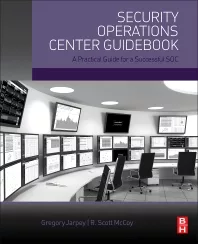Virginia Tech Creates Center for National Security and Technology
Virginia Tech has established the Ted and Karyn Hume Center for National Security and Technology to engage students and faculty who are interested in working with intelligence agencies.
University officials say their new research and teaching center will help address the intelligence community's need for qualified U.S. citizens to work on national security projects, particularly technical ones.
"The Hume Center will address a national need for specialized graduates who are prepared to become contributors and leaders in the intelligence community - a field that not only requires technical knowledge, but also critical thinking skills," says Virginia Tech Vice President for Research Robert Walters.
In recent years, noncitizens have made up an increasing proportion of those getting Ph.D.s in technical subjects at U.S. universities, but only American citizens are eligible for the security clearances needed to do the classified research that intelligence agencies often sponsor. Most engineering Ph.D. recipients now come from abroad, according to the National Science Foundation's most recent tally.
"This is very much a concern within the Department of Defense in general, and we see this center as a way to get more U.S. citizens entering engineering and other technical disciplines and achieving higher degrees," says Jeffrey Reed, the Hume Center's interim director and Virginia Tech's Willis G. Worcester Professor in Electrical and Computer Engineering. By doing that, Reed says, the center can help maintain the pipeline of talent that intelligence agencies need. Working through the Hume Center, officials hope to make students more aware of potentially fulfilling careers in the intelligence industry.
Some of the center's outreach and leadership development strategies, Reed says, will be to arrange lectures and mentorships, as well as to provide help for students seeking agency internships. The center also will provide fellowships and scholarships to students.
The primary mission of the center is to prepare students to work at agencies or in partnership with them, but the center also will be a resource for faculty members who are interested in working on agency-sponsored research, Reed says.
The Hume Center operates within Virginia Tech's College of Engineering, but is being administered through the university's Institute for Critical Technology and Applied Science, an organization that brings together researchers from different disciplines who have compatible interests and skills. The institute's director, Roop Mahajan, says the first steps for the new center are to hire a permanent director, set up an advisory board, and identify students and faculty who are likely to benefit from the center.
"We are looking for a director who can manage and lead interdisciplinary research, is innovative, is not afraid of blue-sky thinking, and can motivate faculty and students to push the envelope of science in the intelligence-research area," says Mahajan, who is also Virginia Tech's J.S. Tucker Chair Professor of Mechanical Engineering and Engineering Science Mechanics.
Ted Hume, who received a degree in electrical engineering in 1975, made a donation that will allow the launch of the center. He began his career in the intelligence industry through a cooperative education program at Virginia Tech. After working for many years in U.S. government intelligence, Hume co-founded Dominion Technology Resources Inc., a systems engineering company that serves the intelligence community. He's been an independent consultant since leaving that company in 2008.
Looking for a reprint of this article?
From high-res PDFs to custom plaques, order your copy today!






